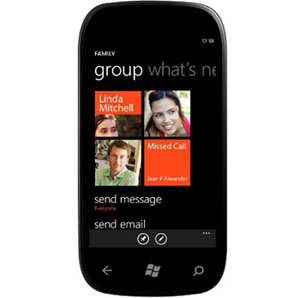Microsoft has RTMed the new “bet the farm” version of its Windows Mobile platform to manufacturers, with device shipments expected in stores September earliest. According to Microsoft it features over 500 new features and faster browsing with Internet Explorer 9.
Its novel interface design has attracted a mixed, but generally favourable response, and the Mango release is expected to improve integration with cloud services such as Bing and Facebook. There is still little detail on SDKs for software developers.
No ad to show here.
“This marks the point in the development process where we hand code to our handset and mobile operator partners to optimize Mango for their specific phone and network configurations,” Windows Phone corporate vice president Terry Myerson said in a blog post.
The move came as Microsoft Japan, mobile carrier KDDI and cellphone maker Fujitsu Toshiba Mobile Communications unveiled in Tokyo the IS12T, which according to Microsoft president Yasuyuki Higuchi will be the world’s first Mango handset.
The device which will also be Japan’s first to carry the Windows Phone operating system, will feature a 13.2 megapixel camera with autofocus, 32 gigabytes of flash storage and will be launched in September at the earliest.
At a news conference held on Wednesday Tokyo time, Higuchi admitted that Microsoft was playing catch up with its competitors.
“We cannot say that Microsoft is not lagging behind rivals,” he said. “We will make all-out efforts to catch up,” he said. “On the back of abundant assets such as our technology and ties with partners, we hope to expand in the mobile business.”
Microsoft unveiled Mango in May, promising it will be available by year’s end for free to existing Windows Phone 7 customers and will ship on new phones from Samsung, LG and HTC and new partners Acer, Fujitsu and ZTE.
Microsoft said it is also working on a Mango handset in its labs with new partner Nokia, the Finnish mobile phone titan which announced in February it would begin using Microsoft’s platform as its smartphone operating system.
When Mango-powered phones hit stores they’ll likely be facing competition from a new iPhone from Apple and the latest versions of handsets running Google
